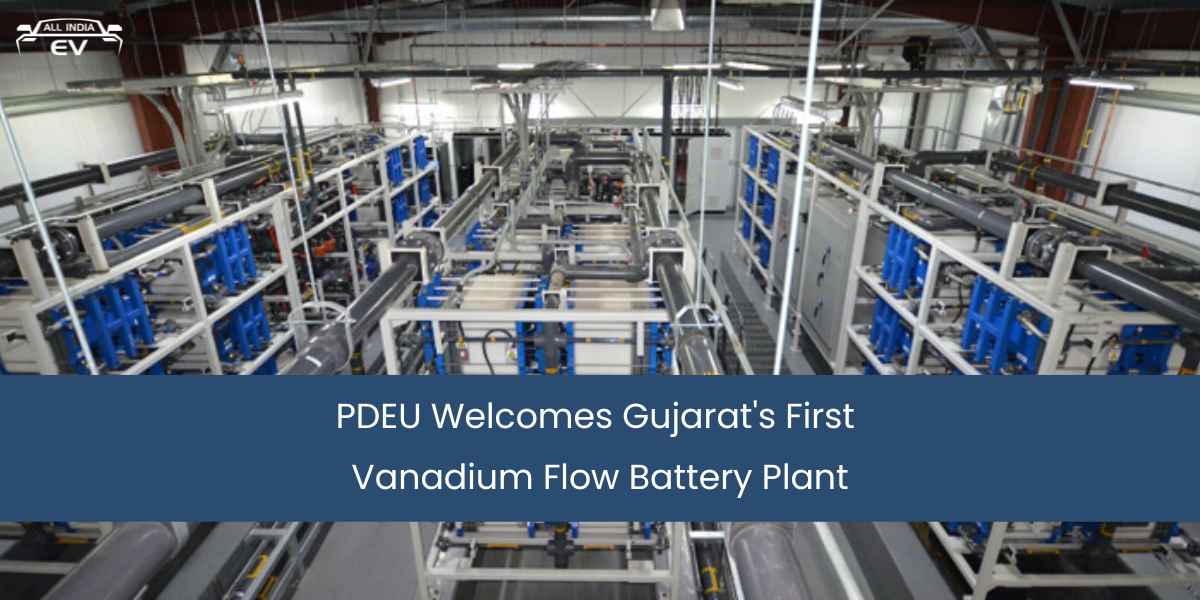PDEU Welcomes Gujarat’s first Vanadium Flow Battery Plant
Making electric cars more common is hard because there aren’t enough charging stations. A lot of these stations use fossil fuels, which isn’t good for the environment. But now, the smart people at Pandit Deendayal Energy University have made a special battery system that can make electric car charging stations last longer. This is a big step towards making electric cars better for the planet!
People who know a lot about electric vehicles (EVs) say that regular charging stations that use lithium batteries can provide 7 to 19 kilowatt-hours (kWh) of power to charge a car. In India, a typical EV needs about 30 kWh of power to charge, so only one car can charge at a time at these stations.
But there’s a new kind of energy storage device called a VRFB (Vanadium Redox Flow Battery), and it’s special because it can store 100 kWh of power. This means it can charge multiple cars at the same time. The new charging setup, which will be officially opened at the upcoming PDEU convocation, includes solar panels, wind turbines on a building called the Translational Research Centre, and a power cube with a capacity of 100 kWh. One part of the setup is designed to show how EV charging works.
Smart people are saying that in India, places like IIT Madras and the Indian Institute of Science have been studying VRFB. PDEU is one of the few places really putting effort into making this technology sustainable and doable, according to the important people there. Prof. S. S Manoharan, who is in charge at PDEU, mentioned that their plan involves using both solar and wind power.
“When the sun is out in a country like India, which is mostly sunny, it will generate solar energy. When the sun is down, it will still work with wind power generation. Compared to conventional power storage, the battery has several advantages, including better safety, no loss of power storage capacity, and a longer lifespan. Thus, we are witnessing research in this direction across the globe,”
– said, Prof. S. S Manoharan
When these batteries are used, they can store renewable energy that can power multiple cars after one full charge. Sources connected to the project said the university is in talks with a private firm for design and development and the state government to expand the network of these batteries and specially designed charging stations in Gujarat. They added, though, that the talks are currently in the preliminary stage.
However, the technology’s very large setup and the scarce raw ingredient vanadium are some of its disadvantages.
“Battery energy storage technology is crucial for scalable renewable energy deployment, and it must be paired with storage to manage energy dispatch during peak demand periods,”
– said Prof Manoharan
“Compared to lithium, vanadium scores highly on many counts. The rechargeable flow battery employs vanadium ions in different oxidation states to store chemical potential energy.”
Content Credit: ET Auto

